|
It takes guts to be a high school student these days. Hormones, isolation, and broken homes stir the cauldrons of anxiety, eating away at students' hearts like acid.
Some rise above it all. Those students, the ones choosing to keep going and love people well, are my heroes, and being around them inspires me to be a better human. At the beginning of every year, I ask my students to bring in “Penny Pictures”. They’re pictures of objects that are valuable to them but not really to anybody else. Some bring in pictures of dogs. Others have pictures of bubblegum-machine-jewelry or clouds. Before collecting them, I give everyone a chance to talk about what they brought, and for a few minutes, all of us delight in the simple gifts that usually go unnoticed, just like pennies. Fifth period was full of people who wanted to share their penny pictures; Sam brought a picture of water and Ashley wanted to talk about her shoes. Each person who shared offered more reasons to smile. Then Callie raised her hand. When I called on her, she held up a picture of a little girl. “This is me when I was two,” she said. “It’s the last picture taken of me before the accident—the last one of me without my scar.” When she said the word “accident”, all the whispering side conversations stopped. Everyone was listening. I asked her what happened. “There was an accident with hot oil.” Her voice was trembling. “It’s how I got this scar on my face.” Most of us had seen it already, but when she pulled back her hair, everyone saw the waves and pink discoloration of a scar that covered most of the left side of her face.“I’m so sorry you went through that Callie,” I said. “That’s okay. It used to be really hard for me, but I’ve learned to let it go.” She was trying to be strong, but the evidence of pain in her quivering smile said it all. “Callie, I'm amazed at the courage you just showed by sharing your story!” I barely finished the sentence, and the class was cheering. We only heard a small part of her story. There was more. . . much more. By second grade, she was being bullied, and it wasn’t just from other students. Her teacher got in on the action, telling her she was “scaring the kids”. Then, when she was desperate for help, her dad checked out of her life. She had nowhere to turn, so “she cried alone.” Thankfully, that wasn’t the end of her story. Even though she may not have seen Him, there was a God who saw her, and He wasn’t finished with her yet. He loved her, and I caught a glimpse of that a few weeks after everyone presented their “Penny Pictures.” My students were finishing another assignment for me, reading their “Face Paragraphs." They had to write a paragraph about the face of the person whose name they drew out of a hat. It had to include five prepositional phrases and some flowery language. Amya, a class leader who usually sat in the front row, was absent the day her classmates drew names, so when I saw her later, I told her to pick anyone. They had to make the paragraphs positive. There would be no describing zits or flabby cheeks, and I offer extra-credit to anyone who reads their paragraph aloud to the class. Sounds awkward, right? But did students still step into the spotlight to read? You bet! They took turns boldly reading their paragraphs like Shakespearean romantics, and every awkward reading was met with uproarious laughter and applause. Amya was the last to go. I was just about to move on to something else when she raised her hand. “Can I share what I wrote?” she asked. “Oh yeah, sure Amya. Come on up.” She walked to the front and laid her paragraph down in front of her. With her sweet southern accent, she read, “This girl’s face lights up the whole room.” She described her person's eyebrows, lips, and the beautiful color in her eyes. Everyone looked around the room while they listened, trying to figure out who she was describing. Then, Amaya mentioned the scar. It felt like the air was sucked out of the room. Nobody looked at Callie, but we all knew. “The scar,” she wrote, “not only represents the past, but strength.” Of all the students in the class she could have written about, Amya chose Callie. And rather than avoid writing about the scar, she focused on it. She let the scar unveil the beauty of the person Callie had become. She read her last sentence: “From hairline to chin, her face is merely pure beauty displaying ultimate perfection.” When I finally looked over, the young lady she was describing was wiping away tears. The class erupted in applause. “Can I take a picture of it?” Callie asked, her eyes still sparkling. “I want to show my mom.” Callie and I sat together after school. She had to finish a grammar test, and when she was done, she shared more of her story. There was a camp, a friend who invited her to church, and some kids she was babysitting who taught her how to pray. There was even a pastor who saw her in the crowd and introduced himself. “God obviously loves you!” I told her. “He saw that second-grade little girl crying alone, and He hasn’t stopped going after you.” She pulled her hoodie over her face, hiding her tears. “My cousin once told me,” she said, “God gives his greatest challenges to His strongest warriors.” She smiled, remembering those words, and whispered, “But I’m tired.” I’m thankful for students in my life like Amya and Callie. So many of them choose to be courageous and let in a little sunlight. Whether they know it or not, they are warriors, God's warriors, and although God doesn’t wear a helmet or carry a shield, He’s a warrior too. He sees us like Amya saw Callie. We’re His “Penny Pictures”, and when we’re too tired to fight anymore, He fights for us, bringing beauty from our scars and reminding us, yet again, that we’re loved. Tags:
0 Comments
Why do I still love teaching? Because kids still surprise me. It didn’t take long this year. The first day I stepped back into school was to help freshmen register. A little chaotic? Definitely, yes! A scenario filled with glimpses of beauty? Also, a resounding yes! There were parents and little, adolescent people everywhere. Lines formed in the auditorium for student IDs and at the library for computers. Familiar staff members stopped briefly to talk in the halls and then helped manage the crowds. After a long 2 years of online learning and social distancing, it was good to finally see all that isolation get a good kick in the butt.Charlie waited in line. His mom was standing next to him and handed me his permission forms and technology contracts. The signatures and initials were in the right places, so I gave him the blue rubber stamp of approval and waited for the next freshman. I was done with Charlie, but he wasn’t done with me. “Did you know the Dollar Store got robbed?” he asked. His question surprised me. He wasn't like his peers--head down, avoiding eye contact. When he asked, I could tell by the inflection in his voice and his mom’s patient smile that he struggled intellectually more than most, but he didn’t seem to care. He was happy. “No. I didn’t know that,” I said. “What’s your name?” “My name’s Charlie!” he shouted with a smile. “Yeah, a man had a gun, and my mom and I found out ‘cause we went there that same day.” He kept going. He wanted me to know what he and his mom were buying that day at the store, how far away he lived, where they went before they came to school, and the names of each of the people in his family. Life exploded out of him. As he talked, he used his hands like a conductor in a symphony, and his eyes looked straight into mine. We were strangers, but he treated me like his best friend. Then, along came Kenny. He was getting ready to walk down the stairs right passed Charlie and I. His right leg bent way too far into his left, bowing in a way that completely changed his gait, and his right hand was twisted awkwardly. Still, he carried his own laptop and paperwork, hobbling across the tile floor, dragging that right foot. I heard him before I saw him. “Hi Charlie!” he said, his voice filled with delight. I turned and saw him struggling with his computer and pile of papers. “Hi Kenny!” Charlie said, pausing his speech to smile at his friend. As they spoke, the line of parents and their freshmen stopped talking. Something beautiful was happening, and nobody wanted to miss it. I assumed the two must’ve known each other from an 8th grade special education class, and I wondered how long they’d been in school together. Like everyone else, I was caught up in what I was seeing, but then as Kenny took his first step down the stairs, reality brought me back.“Do you want some help with that?” I asked. I was a stranger and an adult asking a teenager if he needed help. Most kids would pass, but Kenny slowly looked at his laptop, looked back at me and then said, “Yes please.” The innocence in his voice was refreshing; it brought a softness that smoothed over the rough chaos of the morning.He handed me his things, and we walked down the stairs together, slowly, one step at a time. When we got to the bottom, I saw his dad. He had been walking so far ahead of Kenny, I didn’t even know he was there. I could see he was embarrassed watching Kenny and I come down the stairs together.“I’ll take that,” he whispered, reaching for the computer and papers I was holding. There was no conversation. “Have a nice day!” I said, but neither of them looked back. Dad wanted out of there, and Kenny needed to keep up. Right now in my English classes, we’re talking about pennies. Annie Dillard writes about them in in her book Pilgrim at Tinker Creek, and she uses them to symbolize the little things we should appreciate. Sunrises, squirrels, a smile, the sound of a gurgling stream—these are all things we’re often too busy to notice. Like forgotten, valueless pennies, we can walk past them, or like Dillard challenges her readers to do, we could “see” them. We could celebrate them by delighting in the beautiful fact that they exist.Kenny and Charlie were pennies. They offered glimpses of the grit and beauty of their Creator. I heard it in the softness of Kenny’s voice despite his disability, and I saw it in Charlie’s smile as he talked with his hands. Despite the chaos of that day, everyone standing in line found wonder in their innocence. We found a moment to breathe, to smile.Before you start thinking, Way to go, Erin, you really noticed those boys! you need to know that moment wasn’t completely altruistic. It wasn’t just about me seeing the boys. It was also about receiving a message. In A Five for Fighting song called “If God Made You”, John Ondrasik sings, “If God made you, He’s in love with me.” The people around us, even strangers, are not random bodies we bump into every now and then. They're specially delivered messages to us. Why do I get to hang out with my wife every day? Why does Trent walk in my classroom to wipe down the desks and take out the trash? Why did I meet Kenny and Charlie? When we celebrate the people in our lives like pennies picked up off the ground, we offer love, but we also open up the mailboxes of our hearts to receive it. We can look into those human eyes looking back at us, listen to their sweet voices smoothing over all the rough, and discover it’s true—there’s an Author who loves us, and He fills our stories with beautiful people to show us just how far that love goes. They're messages from Him. All we need to do is take the time to open them. That's all for today! Do you like these stories? A great way you could show your appreciation is by forwarding this email to someone else who might enjoy them. Or did someone forward this to you? Sign up here to get a story like this one twice a month. Thank you for your support!
When the box office hit “Superman” came out, it captured all of my 7-year-old imagination. Sitting in the darkness of Cinema 70, I watched Lois Lane scream for help. She couldn’t hold on much longer, and nobody knew what to do except the nerdy looking reporter in glasses. Running down a deserted alley, he ripped open his white buttoned-down shirt, and everyone saw the “S”—big, red and beautiful! The French horns started playing that familiar tune, and our hearts beat a little faster. Someone was getting rescued!
As a boy, my dream was to be Superman. I wanted to save people, but that’s changed. Don’t get me wrong. Those French horns and that “S” still give me goosebumps. The only difference now is I’ve stopped trying to wear the cape. After 48 years of living, I’m realizing the real wonder isn’t in being the “rescuer.” That’s God’s job. The real wonder is in being “rescued.” And what better place to set the stage for a rescue than a small town like Boquillas, Mexico. After all, God’s a fan of small things. That’s why sparrows, Zacchaeus, and mustard seeds fit so perfectly into the stories He creates. Some of God’s biggest moments happen in small places, so a group of us head down to Boquillas every spring to see what He’ll do next. It’s always exciting to see how He shows up, but no rescues have left us with more jaw-dropping wonder than the rescues we watched Him do on our last trip. Two nights into it, the team circled in the courtyard to pray. We were desperate for help. Deb was scheduled to talk to the teens, but the nerves and the questions weighed heavy. How would they respond to hearing about the cross? What would they do with a chance to publicly confess? There was so much unknown, so we bowed our heads, standing beside each other, and gave it all to God. A few minutes later, the metal door to the courtyard creaked open. One after another, kids stepped through the doorway, making their slow, awkward approach toward the equally awkward people from Colorado Springs. We smiled at each other, trading “Holas” and nodding our heads — even when we didn’t understand each other. Jorge greeted the group, and then Will played his guitar. The kids sang with passion and bright smiles, and in between a couple of the songs, they watched Jessica try one of the games. “Jessica! Jessica!” they chanted as she squatted over a lit candle. A bottle cap dangled from her waist, and the crowd gave her all the inspiration she needed to douse the flame. None of us could stop laughing. Then, as the neighbors’ pigs settled down with their squealing in all that commotion, Deb stood behind a plastic table and talked about the cross. Viri stood next to her, translating. Using clear glasses from the table, she explained how Jesus used the cross to make us clean. “This is our sin,” she said, pointing to the glass with red food coloring. When she held up the glass representing Jesus, people leaned forward in their chairs. She poured the Jesus glass, full of bleach, into the glass representing our sin, and all that red water was suddenly clear. “That’s what Jesus did for us on the cross,” she said, setting down the glasses. Everyone smiled, nodding their heads. She finished by talking about the healing God brings through confession. As Viri translated, I looked at the faces. Kids were really tracking. “Can everyone circle up their chairs?” she asked. We all got up, dragging chairs into a circle, and Deb finished her instructions. “Take a minute to think about what you might want to confess. If you’d like, you can confess it tonight.” The words hung in the air, and we waited. People sat in silence looking down at the ground, avoiding eye contact. Finally, Victor stood up, his eyes glistening with tears. He talked about being new to town, desperate for acceptance; God was the farthest thing from his mind “until tonight” he said. He wept, and everyone stared in awe, but before he could sit down, four men approached him in the middle of that circle, wrapped their arms around him and prayed. Then Jairo was up. More tears. He told the group about his drugs and being kicked out of his house. When he talked about the cartel murdering one of his friends, the pain in his eyes told the story. Again, more men gathered around him, held him and prayed. One by one, they came — Chewy, Jorge, Terri, Fatyma — young men and women desperate for hope. Tears came with confession, and every time they finished, a group of adults rushed to them, put hands on shoulders, and cried out for God’s help. Deb’s talk with the cups was good, but what was happening wasn’t the result of a good speech. Like a rushing wind, there was a force compelling those kids to stand in the middle of that circle. With every tear, every broken word of confession, and every prayer, I could almost hear the French horns of that Superman theme music playing in the background. Even if there was no red cape, it was clear; God was rescuing people, and my heart burned with wonder as I watched. But there was more than just the Spirit of God moving among us. Lurking in the shadows of that courtyard, there was an enemy who hates rescues. We finished the meeting close to midnight, and my family and I walked home full of conversation about what we saw. We had no idea what was coming. We weren’t thinking about the darkness that battles against the light, even in little towns like Boquillas. The news the next morning proved we had a battle to face, and our daughter Hope was right in the middle of it… Be on the lookout for the conclusion to this story to find out the miraculous way God rescued Hope. If you’re encouraged by these words, you can sign up here to get these stories from Erin twice a month! Room 216 is a long walk from the English Department. Going west through the main English hallway, after a sharp right, it’s all the way down near the stairwell. . . pretty isolated. Any teacher who spends a few years working at my high school winds up teaching in different classrooms, and one particular year, I was happy to be in room 216.
It wasn’t my introverted personality or the fact that there were less wandering students trying to avoid security guards. I was thankful to be there because I had some rough classes that year, and any cussing tirades or kids sent into the hallway would be less likely to distract other teachers. Public schools bring lots of people together from all different backgrounds filled with brokenness and insecurities, and that includes the teachers. That includes me. If the wrong scenario catches people in their worst moments, there can be some explosions, and 6th period that year had a few too many of those. The explosions started with a transfer. Jaylen got permission to transfer from one of my morning classes to 6th period. Her grades were low, and she seemed withdrawn, but it was encouraging she still wanted to give me a shot at helping her, or so I thought. Behind the scenes, her friend Becca, who was already in that class, was the true catalyst for the move. They wanted to hang out. On their own, they both seemed harmless. Becca was even becoming a positive classroom leader, but in all my years of teaching, I've never seen a more caustic combination than when those two girls came together. It was like mixing vinegar and bleach, two harmless chemicals on their own, but when they’re combined, toxic chlorine vapors poison the air. It didn’t take long for those vapors to slowly eat away at the classroom dynamic. Just before the first bell would ring, the long walk from my office to room 216 turned my stomach into knots. There was always a battle waiting for me, and every one of them sucked the joy out of the room. One of the few rules I have in my classroom is that cell phones, while important, should remain in backpacks, purses, or pockets. It was a rule that Becca used as an opportunity. Right in the middle of a class discussion, she would pilfer through her purse, take her cell phone out, and then punch the keys to send a text. The old adage of being a "bull in a china shop" definitely applied. She wasn't trying to be subtle. Everyone would look at her typing away on her phone and then look at me. A smile would grow on her face as I approached her desk, and Jaylen would give her a giddy laugh for support. The inevitable back and forth would take place until I had her phone or she was in the hall. Class discussion over—check. Attention from class—check. Jaylen laughing—check. Ephesians 6:12 says, “For we wrestle not against flesh and blood, but against principalities, against powers, against the rulers of the darkness of this world.” Every confrontation with those girls brought that verse to mind and tested my ability to believe it. God was using the battles in room 216 to work on me, and it brought me to my knees in desperation for Him. Checking an email one morning, my heart sank. The school was going to have a Shelter in Place drill during 6th period. What?!! My day went from survivable to nightmarish with one emailed announcement. During a Shelter in Place drill, the students are supposed to move to a part of the room where there are no windows and sit quietly while the teacher turns off the lights. It’s a serious drill because it’s only used when there's a threat in the building. All of the students in that class, including Jaylen and Becca would have to practice being absolutely quiet, and it would be my job to make that happen. Fireworks here we come, I thought to myself. The 6th period bell rang to begin class, and over the intercom came the voice of the assistant principal: “We’re now conducting a Shelter in Place drill. Teachers, please walk your students through the procedure.” The class looked at me, and then glanced over at Becca and Jaylen. What were they going to do? “Ok guys. Everyone get out of your seats and sit against the wall.” Students started walking over to the wall. Some took their time, especially the Vinegar and Bleach. “Let’s go girls; sit down.” I wanted to sound calm and confident. Any signs of frustration would be like blood in the water for sharks. Eventually, taking their time, the girls sat down, and I turned out the lights. Instantly, a blue light went on in front of Becca. It was a cell phone. Without any effort to be quiet at all, Jaylen yelled out, laughing, “Becca, that’s my phone. Give me my phone. Is it a text message?” “Girls, you need to be quiet and put that phone away” I whispered. “Becca, give Jaylen her phone now!” Jaylen reached over to grab it, and Becca stood up, holding it just out of reach. She was smiling, and then both girls started laughing. This was fun for them. “I'd put away my phone if this dumbass would give it to me.” Now there was language, a phone out, and they were standing. It was reaching DEFCON 4, and I felt my blood boiling. The class watched the silhouette of the girls laughing in the blue light of the phone. They were watching the show, and sitting there in the dark, they couldn’t wait to see what their teacher would do next. That's all for today! Sorry to do this to you, but you'll find out what happened next in two weeks. One of my greatest joys in life is to use words to encourage. I hope to do that with these stories, and someday soon with a book. If you think others might be encouraged by these words, please consider sharing this on Facebook or forwarding it to a friend. And if someone sent this to you, you can sign up here to get these stories twice a month. Thank you for your support! It’s a classic scenario. A middle-aged man wants to believe he’s still got it. His days of athletic glory have long since passed, but when he finds himself on the great field of battle against some sleek, muscular teenagers, manly pride takes over, and he’s all in, maybe a little too much in. That was me at a Young Life event a few Mondays ago. The flags were placed on opposite sides of the park, and I wore all black, including my very stretchy sweatpants to accommodate for a growing waist size. The rules were laid out, the ones we could remember anyway, and as we went to our separate sides, I yelled at Reece and Benson, two cross-country runners, “I’m coming after you!” They smiled, and I turned to Ellie, our head leader and asked, “Did that sound intimidating?”
“Yeah Erin,” she replied, laughing, “so scary.” It was just a Monday at the park, but the engines of both teams were revving, and when Ellie got the green light from Abby, the war was on. The sun set behind the mountains in a beautiful orange and blue, and I hid among the lengthening shadows. Screams echoed from the field. Dark silhouettes of kids chased each other in the twilight. Then, one of those silhouettes broke through the first wave of people. It was Reece. “Oh, you are mine!” I thought, making my way to another shadow. This was my moment. “Wait for it, wait for it,” I told myself. With each step, he was running right into my trap. He was my prey, and I was the cheetah. At the last moment, I sprang. Even in the dark, I could see his eyes get big. I felt like 17, right on his heels, reaching, clawing for him. He turned quickly, and I pushed off my right leg, sweeping my hand through the air, desperate to tag some stray part of his hoodie. Then, a sudden pulse of pain. My leg was throbbing, and reality came rushing back. I was 48 again. For the rest of the night, I was limping, helplessly watching as people ran by. Eventually, the two teams put aside their differences and sat together on a cement sidewalk. Leaders grabbed stray cell phones and sweatshirts, and as we walked, or limped toward the kids lit up by the orange glow of the streetlight, Ellie said to all of us. “Let’s go tell kids about Jesus!” It was Sara’s turn to speak. “I’m going to read you a story,” she said. She flipped through some pages in her Bible and read the story of Mary and Martha. While Martha worked busily preparing a meal for guests, her sister Mary did nothing but sit at the feet of Jesus. Martha’s frustration festered like a sticker in a sock until it was too much. Sara closed her Bible. “Let me pause here,” she said. “I can relate. Have any of you heard of gyoza?” People looked at each other quizzically. “It’s a Japanese delicacy, a lot like pot stickers.” She explained her family’s tradition of making gyoza and then made a connection with Martha. “When I see my sister sitting on the couch while I’m working,” she said, starting to shout, “it gets to me.” People laughed. “But look at Jesus’ response.” She opened her Bible again: “Martha, Martha, you are worried and upset about many things, but only one thing is needed. Mary has chosen what is better” (Luke 10:41-42). Sara paused, letting the words sink deep. Then, she looked at us and said, “We try to fill the gaps of all this isolation by doing more, but Jesus just wants us to hang with Him.” I’ve read Jesus’ words to Martha before, but after Sara shared them under that orange streetlight, they’ve taken on new meaning. I love that Jesus repeated Martha’s name, like a father settling his daughter’s anxious heart. And what made Martha so anxious? Sure she was thinking about a meal, but Jesus saw through all that. It wasn’t just the meal. It was about doing. It was about performing instead of resting and being. My attempts at performing that night by showing off my lightning speed didn’t go so well. Nobody walked away impressed, and that wasn’t the only moment that week of being much less than impressive. Thursday morning, there was more “doing” to be done when I tried to teach with Google Slides. Nothing worked. No matter how hard I tried, the screen kept saying “Access Denied”, and those precious 90 minutes with my students were stolen away in a digital disaster. Earlier that week, I tried to give a Young Life talk on the top of Pulpit Rock, but the wind picked up and suddenly loose sand was pelting our faces. Kids pulled their hoodies closed like Eskimos in an arctic blizzard. Forget cute jokes and dramatic pauses. They could barely hear me above the howling wind. Like Martha, it was all about the preparation, all about the “doing”, and the “doing” was a miserable failure. Sitting here in my backyard as I type this, the yellow in the leaves is highlighted by another beautiful sunset. Everything is quiet, and those words of Jesus come through with crystal clarity. Only this time it’s my name He’s repeating. “Erin, Erin,” He says, “You are worried and upset about many things, but only one thing is needed.” He’s right. I am worried and upset about many things, and like Martha, I tend to think my performance will somehow calm the storm. The problem is my “doing”, no matter how impressive, isn’t what’s needed. Martha’s meal wasn’t what was “needed”. Neither is teaching a flawless class, giving an inspiring Young Life talk, or having young legs that can run like the wind. Even these blog posts are not what are ultimately needed. My “doing” will continue to let me down, but Jesus whispers, “Step off the stage and let it go.” He’s here, and He’s calling us, like Sara said, to “hang” with Him. He’s done all the doing that needs to be done, so we can let go of the doing, let go of being impressive, let go of the worry, and finally rest like Mary in being His. Boys love drainage tunnels. With each step deeper into one of those unknown man-made caves, the anxious voices and the splashes through the trickling water echo off the corrugated steel walls. Light fades. Those places, on the edge of darkness, are where boys aspiring to be men, prove their worth.
During my middle school years in the heat and humidity of a Virginia summer, we all affectionately called our proving ground “Snake Tunnel”. It was the perfect name for a tunnel that slithered its way under our neighborhood. The broken-down fence around it was easy enough to slip through, and many had before us. The graffiti testified to that. Our wiry middle school bodies fit perfectly two by two as we stood at the entrance, and thank God; it helped to have a companion at your side in case of trouble. There was always great anticipation walking into that echoing silence. With wide eyes, we paused looking at each other to be sure we were really going through with it. Then, ever so slowly, we moved forward, each footstep echoing off walls we could not see. Once our eyes adjusted, we could see the cobwebs and the light behind us reflecting off the water. Four or five of us walking into that tunnel made quite a sound, and we never spoke what we all thought: What if our noise was alerting someone. . . or something of our presence, and it was crouching, ready to pounce? “Maybe we shouldn’t do this guys,” someone would yell out. That would be followed by four heads turning to him with a mighty, “Shhhh!” Two or three more steps and someone else would whisper, “What was that?” We all stopped to listen, our minds going back to that questions nobody wanted to voice. Was someone else there? Hearts pounding in us, we continued, light getting scarce and fear growing. Finally, someone would yell, “I heard it too. I think something’s coming.” The yell in the midst of the vast unknown would be too much, and we would turn toward that little circle of light and run as fast as we could. Now, this would never be a controlled stealthy maneuver out of the darkness. Fear always seemed to get more intense when our backs were turned to the perceived threat. We were confident something was chasing us, so we screamed like little girls. If terror had not made its way into our hearts by then, the noise of the screams and crazed splashing as we ran for our lives would certainly send that terror like electricity through our bodies. We wanted that light like it was life itself. We’d explode out of the tunnel and hunch over, hands on our knees, to catch our breath. Then, in all that brightness, we’d laugh with full on belly laughs until tears rolled down our cheeks. I wonder about that laughter. What was so funny? Maybe our panicked reactions struck us as funny when we thought about them in the light. Maybe it was relief. The fear was behind us and we would live another day. Most of all, I think we laughed as a reaction to our freedom from the unknown. We were captives in the tunnel, but we could see in the sunlight that there was “something more” beyond the darkness. We’re living in a time that feels a lot like the darkness of Snake Tunnel. Confusion and noise reign supreme. Someone makes a comment, and it echoes off the walls of social media. The splashes of political tension explode into broken friendships, and a virus has everyone confused. Mask or no mask? In-person or quarantine? Vaccinations or no vaccinations? And when you add to all that our own mess—the woundedness, the fear, the pride--that tunnel can feel pretty overwhelming. That’s what makes the little circle of light at the end so beautiful. My friends and I saw it, and we ran toward it, with reckless abandon. The circle got bigger and bigger until the darkness was gone. And it wasn’t our maturity that got us there. I mean come on; we were middle schoolers. It was because we were so freaked out that we were about to soil ourselves. We were desperate. Peter says God calls us “out of darkness and into His marvelous light” (1 Peter 2:9). The irony of the times we’re living in right now is that all this darkness only makes the light that much more beautiful. It drives us toward the light, and we won't get there because we're so spiritually mature. We'll get there because we're desperate. A moment to pray, a Bible verse that comes to mind, a song on the radio—those moments of light are more “marvelous” now than ever before. We need them because we're hungry to see what's just outside our tunnels. My friend Lois Taylor chooses to paint in the midst of her tunnel. It’s her way of "dancing in the storm". What you see here is her “doorway” to healing. The cave is the symbol of her brokenness, pain and confusion, but then just outside are trees, blue sky, and guess what else? Light!! What I love about this painting is that the cave is only a small part of it. Yes, the suffering and confusion are there in that little cave. The hard parts of living are very real, but the “something more” beyond the cave is what dominates the painting. There are times in life when it feels like the darkness and noise of our caves and tunnels is all there is, but like Lois’ painting so beautifully portrays, it’s not. There will be a day when the light will overwhelm the darkness, and Jesus, the “light of the world”, will be there. He’s calling us out of the darkness, and He’s not just yelling into the tunnel, “Get on out of there!” He walks beside us, and He uses our desperation, like those middle school boys, to help us see “something more” beyond the darkness, glimpses of what's ahead. Our belly laughing moment of sunshine is coming, but until we get there, we need to hold the hand of the One walking beside us, look for the light, and move toward it. That's all for today! One of my greatest joys in life is to use words to encourage. I hope to do that with these stories, and someday soon with a book. If you think others might be encouraged by these words, please consider sharing this on Facebook or forwarding it to a friend. And if someone sent this to you, you can sign up here to get these stories twice a month. Thank you for your support! A COVID Shocker
Helplessness is a common feeling these days. Storms shut down cities, leaders debate, and a virus continues to keep everyone isolated. It feels like any action we take would be as helpful as dumping a glass of water on a forest fire. We’re small compared to these national and global problems, but we do have one powerful option—we can pray. That’s what motivated twenty grown adults to sneak into a garage. It was the night before the statewide cross-country meet. As the runners ate their team dinner, the parents circled up next to an SUV to pray for them. Apparently, this happens every year, but since this was my son’s first year on the team, the tradition was new to me. Linda gave an opening prayer for protection. Then it was quiet. The floor was open. Honestly, the prospect of praying with all those people was terrifying. My heart beat so fast, I could hardly breathe, but this was special, and when Isaiah 40:31 came to mind, no matter how much I tried to avoid it, I wondered if maybe God wanted me to pray. Yikes! Finally, with a trembling voice, I broke the silence: “God, thank you for the young men on this team who’ve been examples for my son. . .” Two big breaths. “. . .Isaiah 40:31 says, ‘Those who hope in the LORD will mount up with wings like eagles. They will run and not grow weary.’” I paused, thinking about that verse. The word "hope" stood out. “More than running or being fast, please help these kids to put their hope in you.” There were more powerful prayers of blessing and strength. Then, someone said “Amen,” and after some lingering conversation, the garage was empty. That night, David went to bed early. He wanted to be well-rested for the big race. This would be his first high school state meet. In his estimation, this race was what he’d been training for all his life. The whole family was excited, and when I turned off his light, I wondered if he’d be able to sleep. The phone rang. “Hello.” “Hi. Is this Mr. Ahnfeldt?” The voice sounded heavy. “Yes it is.” “This is the Athletic Director from your son’s school. I’m afraid I’ve got bad news.” “What’s going on?” I asked. “We need to put David in quarantine.” He paused for a minute, letting the news sink in. “He won’t be able to compete tomorrow. I’m so sorry.” I thanked him for doing his job, and he acknowledged it wasn’t easy. When we hung up, I went downstairs to tell David. “David?” I whispered into the darkness. “Yeah.” I walked into his room, letting the light in from the hallway, and sat next to him. “The Athletic Director just called.” I waited to see if he was listening. “He said you’re in quarantine. . . and. . . .” He knew what was coming, and his eyes were wide with shock. “I’m sorry, Buddy, but you can’t race tomorrow.” “No! You’re kidding me?” he asked. “No. . . I’m so sorry.” As reality set in, the tears came. He turned his back to me and pounded the mattress. “Why?!” he yelled, but he didn’t want an answer, and I didn’t have one. “I’m so sorry buddy,” I kept saying, but nothing I said helped. The next morning, I got up, grabbed my earbuds and took a walk. The leaves were a gorgeous yellow, and the air was crisp. God and I needed to talk, so I let it out. I told Him I didn’t know what to do, but I thanked Him for the love poured out from the coaches and teammates. After putting in my earbuds, I listened to some music, and my heart began to settle. Then I heard a voice. It was Clara, a character in the movie War Room, and her prayer was introducing Steven Curtis Chapman’s song Warrior. As I listened, her voice and Chapman’s became God’s voice to my heart. Her words were filled with victory: “You did it again, Lord, you did it again. . .” The hopeful tone was leading my heart to a different place. God was doing something good. Chapman’s guitar kept playing as he sang about a warrior who fights battles on bended knees, and when Clara prayed, “Raise up a generation, Lord, that will take light into this world,” my eyes filled with tears. It was clear. God was raising up David! As soon as I got back, it was time to leave for Hope’s soccer game. We hit the gap between Colorado Springs and Castle Rock, and I asked Deb to play the song Warrior. There was Clara’s voice praying again and Steven Curtis singing the lyrics, and again I had to wipe away tears. My prayer from the night before came back to mind: “More than running or being fast, please help these kids to put their hope in you.” When the song was over, I looked at David in the rearview mirror. “David” I shouted over the noise of the traffic. He was looking up at me. “I’m proud of you.” My voice was trembling, and I could barely talk. “God chose you! He chose you to show the world what it looks like when a young man puts his hope where it should be—not in running or in being fast, but in Jesus.” He gave me a subtle-teenager smile, and whispered, “Thanks Dad.” I’m ashamed to admit it, but sometimes I pray without fully absorbing the incredible truth that God’s actually listening. He heard me in that garage and gave me an answer I didn’t see coming. Then He saw my reeling heart on a trail and gave me truth to share. This life right now is as blinding and chaotic as a whiteout blizzard, but even if we can’t see anything, God sees us. He sees our stories from beginning to end, which means He might choose us for storylines we don’t like. He’s the Author, and knowing that He can see us may be just the encouragement we need to do the only thing we can do, in the midst of all this smoke, and call out for Him to lead us through. That's all for today! One of my greatest joys in life is to use words to encourage. I hope to do that with these stories, and someday soon with a book. If you think others might be encouraged by these words, please consider sharing this on Facebook or forwarding it to a friend. And if someone sent this to you, you can sign up here to get these stories twice a month. Thank you for your support! Every year, my students and I talk about a boy and a tunnel. In fact, we draw it. Either some brave students pick up the colored dry erase markers and show us what they’ve got on the whiteboard, or I torture them with my stick figures and blobs that are supposed to be rocks. If I’m drawing, I tell them, with a smile, not to be intimidated by my artistic abilities. They laugh out loud or roll their eyes. A few of them offer up their notebooks to show me what they’ve done, proving I’m clearly not the best artist in the room. With our blue textbooks open to Doris Lessing’s Through the Tunnel, we draw the safe beach, the one with the soft sand and the orange-peel umbrella, the one the boy's mom would prefer he never leaves. With her husband gone, he’s all she’s got, so she holds on tight. We draw the rocky bay, the place the boy longs to see, where the rocks are sharp and the boys are older. He watches the boys disappear under the water, and when they don’t come up, he panics, thinking they’re drowning. Eventually, he discovers their secret—they’re swimming through a tunnel. We draw that too. The boy spends most of the story trying to get through that tunnel, trying to be like those boys. His nose bleeds, the tunnel itself bangs him up, and he almost drowns. Worst of all, it’s dark, but he feels driven to get through it. When we’re finished drawing, I ask, “What's happening in this boy’s life?” Hands shoot up, and we talk about the safe beach being his childhood, the rocky bay being adulthood looming ahead, and that tunnel being the passageway from one to the other. “Everyone get out your journals,” I tell them, looking up at the clock. They pull out their notebooks with the usual groans, and I ask, “What’s a ‘tunnel’ you had to go through that forced you to grow up?” The silence comes quickly, and I let them write. 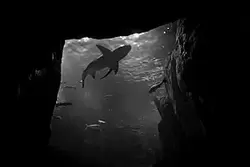 A few minutes pass, and I ask, “Would anyone like to share?” I’ve done this same lesson every year for the last 10 years, and I’ve never gotten a response like I got two weeks ago. Jenna raised her hand in the front. “Yes, Jenna,” I said, pointing at her. “So . . . my brother is a crackhead, exactly like the ones you see on TV.” She was smiling, trying to be strong. “He’d come home from wherever he’s been, and I’d find his kids asleep in my room.” She was looking down at her desk, fidgeting with her pencil. “He’d be crashed in his room, so I’d have to take care of his kids. Being the youngest, I wasn’t used to that.” More hands were going up. I pointed at Eden. She was quiet. I knew raising that hand took a lot. She spoke with a Spanish accent. “I’ve moved six times since I started school.” She looked up at me, and there was a heaviness in her eyes. “Each time I moved, I wanted to make friends, but I couldn’t speak English, so I was alone.” She looked back down at her desk. “I had to learn to make it on my own.” I looked at Eden. “That would be hard,” I whispered, and everyone nodded quietly. One after another, kids shared, many with tears, and I thanked each of them for their courage, but beyond that, I felt helpless. Lacie raised her hand. She had been gone for a few days, so the class hadn’t heard much from her. “Go ahead Lacie,” I said, looking at her. “I’m still going through my tunnel,” she said, tears already running down her cheeks. She turned around in her desk and looked at the class. “You guys probably noticed I haven’t been around for a few days.” She waited, gathering strength for what she was about to say. “I tried to kill myself last weekend.” Students looked at each other and looked up at me. 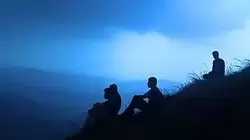 I looked at Lacie, watching her cry, hoping God would give me the words. Finally, I said, “We all walk these halls with no idea what people are carrying, and when you share what you just had the courage to share. . .” I paused, waiting for their attention. “You’re not only letting go of the stuff inside of you; you’re letting others know they’re not alone.” There were more nodding heads, and when the bell rang, I watched Emma and Kaitlyn walk over to Lacie and wrap their arms around her. They all left, and I dropped into my chair, exhausted. Two days later, I saw Kay in the teacher’s lounge. She lost her son last year. He took his life, overwhelmed with a depression he felt helpless to shake. I’ve watched her carry that pain and still manage to love kids at our school. Now, her son’s friends sit in her room at lunch; her office is a safe place for them. Conversations with Kay aren’t superficial. She lets the tears flow when she feels them coming, and she’ll open up to anyone who’ll listen. “Erin,” she said, looking me in the eyes, “these kids just want to be seen.” Her eyes were glistening. I could see a passion there beyond anything I had experienced. “More than grammar or getting through some curriculum, these kids need to be heard; they need to feel loved. . .” She tilted her head, wiping away another tear. “. . .and you can offer that to them.” I walked back to my office, thinking about the tunnel conversation. It felt like too much. It left me staring blankly at empty desks, like I was sitting there in the dark. But there’s a God who loves to use women like Kay. He moves freely through the halls of my school, just as freely as He does through the pews of any church, and He used Kay’s words, spoken out of brokenness, to keep me going. We may not have all the answers, but as people around us struggle, we can be with them. Despite our feelings of inadequacy, we can feel the warmth of God’s smile when we sit with people in the cold, darkness of their tunnels, because when we’re there with them, so is He. You’ve probably noticed. Each new year brings more change.
My knees hurt a little more going up the stairs, my daughter is going to parties with girls and boys, and my son now uses the word “dude,” a little too much if you ask me. The “baby” in the family is now 10, and she gave away her plastic kitchen set years ago; there are no more “blankys” or conversations with dolls. Time goes by, and it’s not easy. That reality hits me even harder when I look at my parents. My dad and I took a walk last week. We hiked up through some trees on my grandpa’s farm and then down toward the creek. He had a walking stick, and each step was careful. Whenever he came to a steep hill or a ditch, I found myself standing nearby, ready to catch him if he fell. He smiled the whole way, proud to be out again, walking after his back surgery. This is the man who was invited to try out for the Boston Red Sox. He used to take me down in wrestling and beat me racing to the mailbox. He’s probably reading this and thinking to himself, “I probably still can.” Think again Dad. He shouldn’t be playing tennis anymore, but he still does, and he comes home pretty wiped out. Watching my parents get older makes me think about time. It makes me think about saying goodbye to them when they go and saying goodbye to my kids when I go. Honestly, it makes me a little anxious. To add to the heaviness, much of my Christmas break has been spent grading papers about Euthanasia. It’s my own fault. I gave my students the topic. It seemed to fit with Of Mice and Men, a book highlighted by a couple of scenes when life is taken away to avoid suffering later. The kids in my class struggle with those scenes. Tears even come. Then I struggle when I hand out two pieces of writing that I know will shake them up even more. One is an article by Brittany Maynard. She was 29, facing a difficult end to a battle with cancer, and she explained why the suffering coming made her want to leave before it came. The other piece of writing is a letter to Maynard from Kara Tippetts. She pleaded with Maynard to not end her life early, writing about the beauty that comes in the last moments. We talked about it in class. During 7th period, Grace raised her hand. Her face expressed the heaviness we all felt. I called on her, and she was almost whispering: “Death scares me. Nobody knows what’s going to happen. I mean, do we keep living or is this all there is?” Her honesty was beautiful. And I get it. Opening that door of our limited time here on earth usually means facing the fear lurking on the other side. A few more hands went up with more questions. Sam asked why I was making them write about something so heavy. I told all of them that facing death, especially as teenagers, is actually healthy. Too many of us pretend we’re going to live forever and never ask questions like the ones Grace asked. The bell was about to ring, and I smiled as I said to them, “Well, have a great day!” As they reached for their backpacks, I got a few weary smiles and chuckles, but most of them were shaking their heads. Last Saturday night, we asked David, my son, if he was comfortable leading our family in doing church at home. With a little sheepish 7th-grade grin, he said “yes.” The next morning, with eagerness in his voice, he gathered the family. Some took a little more time to be gathered than others, but we eventually made it. Then, cuddled up on the couch in our pajamas, he had us read about Simeon, a man who met Jesus a few days after His birth. One verse really jumped out at me: “Sovereign Lord, as you have promised, you may now dismiss your servant in peace” (Luke 2:29). Simeon probably spent much of his life waiting and looking for the One who would be called Emmanuel, God with us, the One God promised he would see before he died. When that day finally came, filled with joy, he told God that He could now “dismiss his servant in peace”. That’s how he saw death. “Dismissal,” in a teacher’s mind, is the joy of every student. When that bell rings, kids run into the halls ready for home, for friends, for food, for whatever waits beyond the classroom door. Seeing death like that, like being dismissed from class, makes sense. In fact, it may be God was using David to do a little work on my anxious heart. I didn’t ask him to share those verses, but they spoke to me about something God knew was weighing me down. Christians facing death, or any changes in life, can have peace. There is a God who always has something good waiting for us around the next bend, even on the other side of death. Having that peace is what makes us different. On the night when the angels appeared to the shepherds in that dark field outside of Bethlehem, they filled the sky with light and shouted into the darkness that there would be “peace on earth on whom God’s favor rests” (Luke 2:14). Bells will ring in life for us to move on from healthy knees to achy ones, from plastic kitchen sets to “dude” and from parents who can take us down in wrestling to parents who could use a little help on walks through the pasture. Eventually, a bell will ring for us to say goodbye and leave this “classroom” we call life, but that bell brings a peaceful dismissal for those who know God loves them. There are friends waiting, feasts to be eaten and a home to enjoy that is much better than anything this world can offer. As the changes come, God has good plans for us. Simeon rested in that, and if we can look for Jesus like he did, trusting He loves us, we can rest in that truth too. Erin teaches English at Doherty High School, and he and his family attend Pulpit Rock. Read more from Erin on his blog where he writes about seeing God in the public school classroom and in the every day. The word "awesome" is tossed around a little too much, but when it comes to moose, it fits. Who can resist the majesty of a moose? I certainly can't. Standing in a circle with our backpacks resting against our knees, we were a little nervous about what was ahead. Our backpacking guide asked, "What are you guys hoping to get out of this trip?" The answers came one at a time as they went around the circle. "I really hope to experience closeness with God," someone said. Then another answer came: "This is my chance to face some of my fears." The profound answers kept rolling, and then all eyes were on me. I was one of the adults leading these kids, but I didn't want to just be spiritual for the sake of being spiritual, and I knew what was at the front of my mind, so I just said it: "I'm hoping to see a moose." Some people smiled politely, and we moved on to the next person. As soon as all answers were given, we helped each other with our packs and headed out.
With some kids who had never been camping and quite a few others who gravely underestimated what they were in for, ideally that first day would be nothing but gentle downhill slopes and sunshine. It was none of that. I'm just going to say it. That first day sucked! Most of the first few miles were uphill, and about a third of the way into the trip, rain began to pour down. It kept falling for the next 5 miles, the entire time we set up camp, during dinner, and as we got ready for bed. Kids were standing under trees blowing into their hands to stay warm. Two others asked me if it was too late to go home, and one had a migraine. He was throwing up under the canvas fly that the guides told us would be our "tent". The two backpacking guides asked the two adult leaders, Rachel and I, to meet with them to assess the situation. Our faces were not exactly glowing with enthusiasm as rain dripped from our hats, and then one leader recapped what the kids were hoping to experience on the trip. Their desire to grow spiritually touched him, but there was one answer that didn't fit: "Didn't someone say he wanted to see a moose?" He laughed shaking his head, and I smiled awkwardly, too embarrassed to point out that the dumby who said that was me. We finished the meeting and headed to our sleeping bags. The only problem was there was not much room under the fly. The tiny space that did exist was next to the kid throwing up, so I grabbed my bag I was really hoping was waterproof, positioned my head under a pine tree and tried to sleep. Rain poured down all night. The wet bag made me feel like a newborn kicking around in a uterus while I tried to make air holes to breathe through the jacket I threw over my face. As I watched the rain come down around me and prayed for the night to be over, I asked God what he was doing. It was definitely not how I expected the trip to go. Finally, despite frozen feet and a soggy sleeping bag, I fell asleep, and then, in what seemed like minutes, my eyes opened to sunshine. Everything was soaked, but birds were singing, and sunlight was warming the cold ground, warming me. I didn't want to disturb the sleeping camp, so I quietly unzipped my bag and pulled myself out of the soaked uterus. Everything was beautiful! Raindrops resting in the pine trees were twinkling in the sunlight, and the meadow next to our camp was a rich Ireland green. I could barely see the night before. Now it was all lit up. I walked toward the meadow, enjoying the warmth of the sun, and as I stretched my arms, enjoying the view, my heart skipped about 4 beats. I almost dropped to the ground. Right there in front of me was a huge, brown mother moose and her baby eating in the meadow. Nobody else was awake but me, and after my heart stopped pounding, I just stared at them in silent awe. God was giving me a private viewing. Why? I know why. He wanted me to know two things: He loves me, and He sees. In Genesis 16:13, God comes to the rescue of a desperate woman alone in a desert, and when hope fills her, washing away the despair, she cries out to Him with a heart full of thanksgiving, "You are the God who sees." God saw me. He saw me as we stood in the circle and I told the group I wanted to see a moose. He saw me trying to encourage the guys that it would get better as rain poured down on us, and He saw me feeling stupid when one of the guides chuckled at my very unspiritual desire to see a moose. It wasn't unspiritual to God. He knew exactly what I needed. Like Gandalf breaking through the darkness of Helm's Deep with the dawn, God showed up just when I needed Him with the freshness of a new morning and a moose. The doubt and discouragement of the night before were gone in one move. He was near to me, and that was all I needed to know. |
AuthorErin Ahnfeldt is a high school English teacher who is constantly challenged by the Categories |
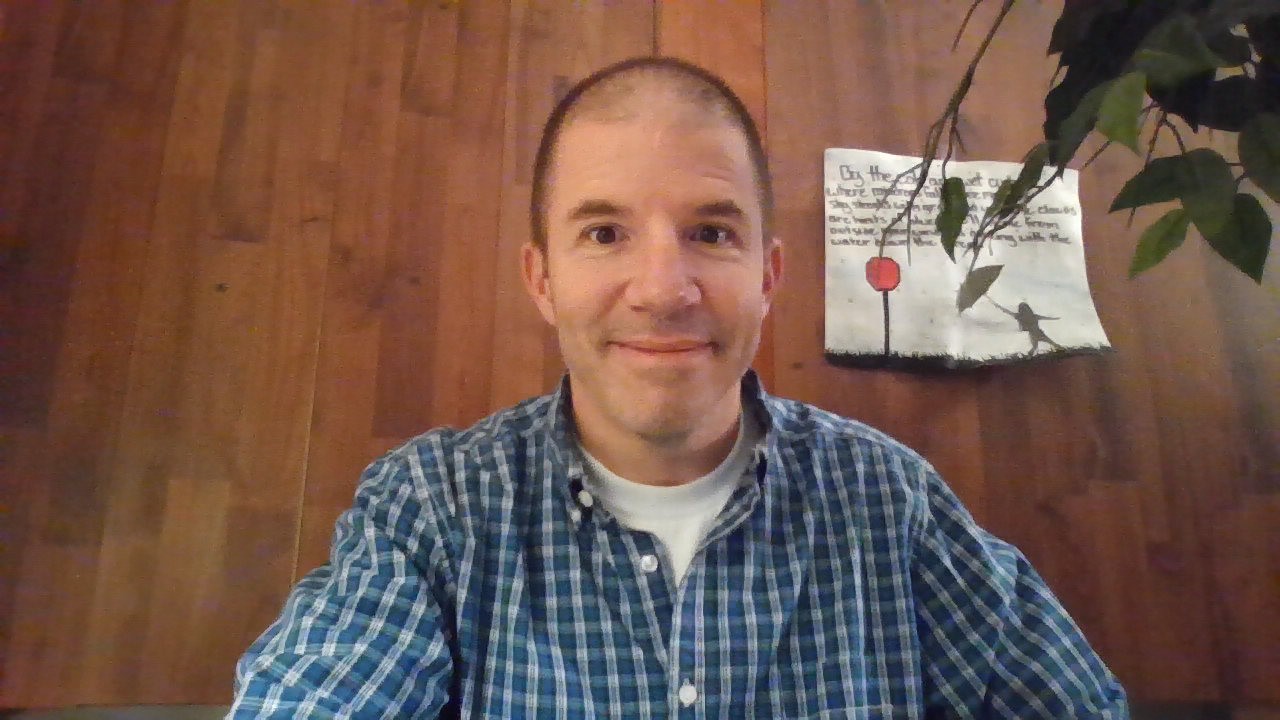




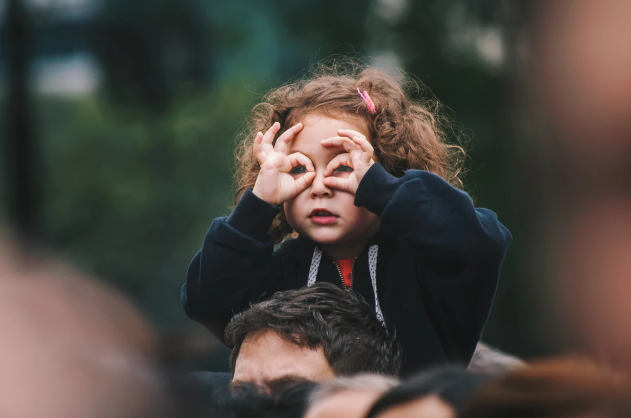
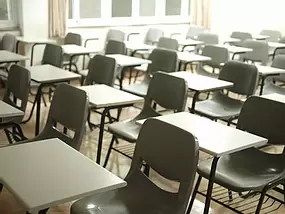

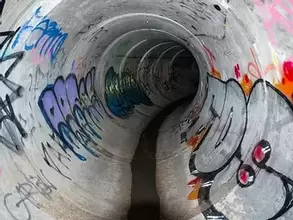

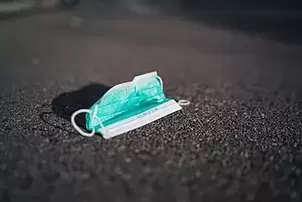
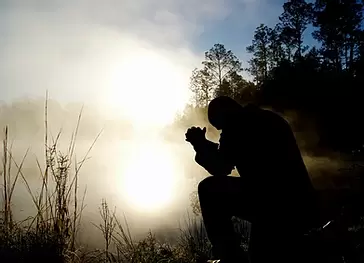
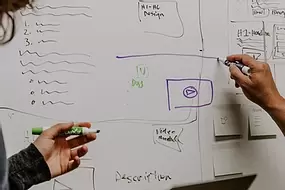
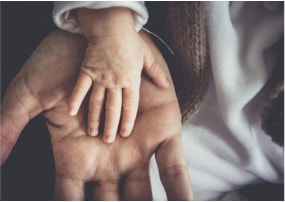


 RSS Feed
RSS Feed